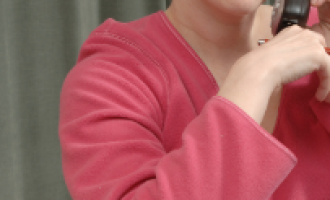
Scientists at the University of British Columbia and BC Children's Hospital are the first in Canada to use a new test for paediatric tumour analysis that may one day guide personalised treatments for children with cancer.
Working with researchers at Children's Hospital Los Angeles and the Keck School of Medicine at the University of Southern California, the team analysed 28 childhood tumour samples from nine cancer types archived in the BC Children's Hospital Biobank.
The research was published in the JNCI Cancer Spectrum.
They found that the paediatric cancer-focused test found more genetic mutations per sample compared with tests used to analyse adult cancers, and better identified weaknesses that can potentially be targeted with drugs.
From extracting DNA from cancer cells, to sequencing and analysing a sample, the whole process ideally takes two to three days in the lab.
The new technology allows genes of interest to be amplified and can provide results for up to 16 patients in one week.
At the end, researchers have a list of possible drugs that may target the paediatric cancer cells.
"Paediatric cancers are often very aggressive, so doing these types of tests need to be very fast," said lead author Amanda Lorentzian, a UBC graduate student.
"Using targeted sequencing allows for a fast turnaround time and a simple workflow. It has a lot of potential to inform better treatment options for paediatric patients."
The results are part of Lorentzian's work with Chris Maxwell and Philipp Lange, co-senior study authors, in an innovative field of cancer treatment research called precision oncology.
Similar tests have been designed for adult cancers, but childhood cancers require a unique approach since different tissues are affected and fewer drugs are safe for treating children.
"This test uses DNA sequencing technology to look at thousands of specific regions in the tumour's genome and identify changes or mutations in those areas," said Maxwell, an associate professor in UBC's department of paediatrics and investigator with the Michael Cuccione Childhood Cancer Research Program at BC Children's Hospital.
Currently, most children diagnosed with cancer receive treatment and survive.
For many cancer types there is greater than an 80 per cent cure rate, but the possibility of relapse is always looming.
"Because cure rates drop dramatically for children that suffer a cancer relapse, we hope this new technology may identify more targeted treatments," said Lange, an assistant professor in UBC's department of pathology and laboratory medicine, Canada Research Chair in Translational Proteomics of Paediatric Malignancies, and investigator with the Michael Cuccione Childhood Cancer Research Program at BC Children's Hospital.
"In addition, we are thinking of ways that we can use this technology in a more proactive way to study the child's cancer early and prepare for a disease relapse prior to its occurrence."
While proactive treatment plans are still years in the future following clinical trials, this study is the first step toward a personalised standard of care for childhood cancer patients.
Source: University of British Colombia
We are an independent charity and are not backed by a large company or society. We raise every penny ourselves to improve the standards of cancer care through education. You can help us continue our work to address inequalities in cancer care by making a donation.
Any donation, however small, contributes directly towards the costs of creating and sharing free oncology education.
Together we can get better outcomes for patients by tackling global inequalities in access to the results of cancer research.
Thank you for your support.